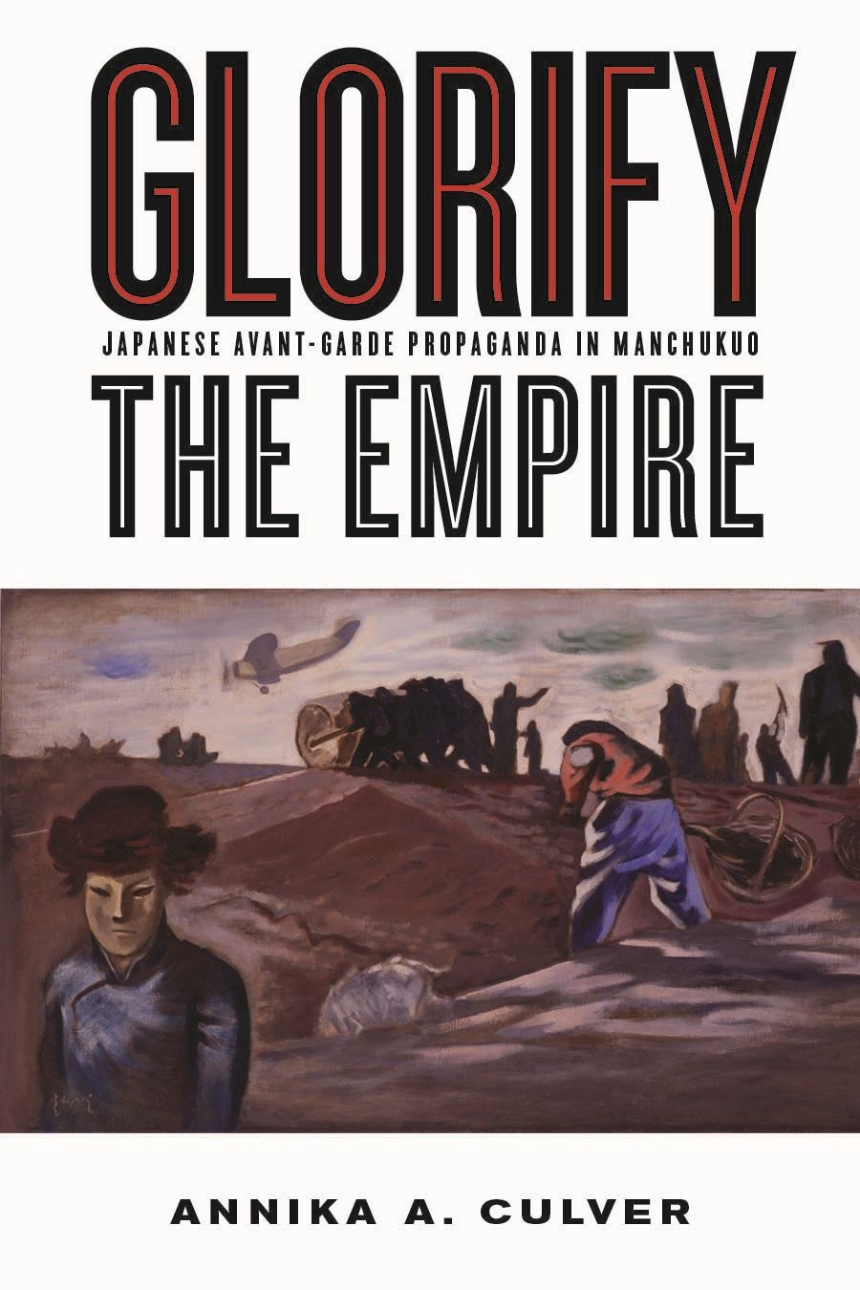University of British Columbia Press
Glorify the Empire
Japanese Avant-Garde Propaganda in Manchukuo
Distributed for University of British Columbia Press
Glorify the Empire
Japanese Avant-Garde Propaganda in Manchukuo
In the 1930s and ’40s, Japanese rulers in Manchukuo enlisted writers and artists to promote imperial Japan’s modernization program. Ironically, the cultural producers chosen to spread the imperialist message were previously left-wing politically. In Glorify the Empire, Annika A. Culver explores how these once anti-imperialist intellectuals produced avant-garde works celebrating the modernity of a fascist state and reflecting a complicated picture of complicity with, and ambivalence toward, Japan’s utopian project. A groundbreaking work, this book magnifies the intersection between politics and art in a rarely examined period of Japanese history.
Table of Contents
Introduction: Propaganda in the Manchukuo Context, 1932-45
1 Laying the Groundwork for the Japanese Avant-Garde Propagandists
2 Literature in Service of the State: Yamada Seizaburô and Right-Wing Proletarianism, 1931-43
3 Surrealism in Service of the State: Fukuzawa Ichirô and Associates, 1935-36
4 The Lure of Artistic Vision and Commercial Prerogative: Ai Mitsu and the Burden of Representation, 1935 and 1943
5 Reflections of Labour and the Construction of the New State: Fuchikami Hakuyô and Manchuria Graph, 1933-41
6 The Manchukuo Publicity and News Bureau’s War of Words and Images: Mutô Tomio and the Discourse of Culture, 1938-43
7 The Legitimization of a Multi-Ethnic Literary Culture in Manchukuo: Kawabata Yasunari’s Promotion of Manchurian Literature, 1941-44
Conclusion: The Reflected Utopia Darkens: Manchukuo, Imperial Japan’s Surrender, and Postwar Issues
Notes
Bibliography
Index

